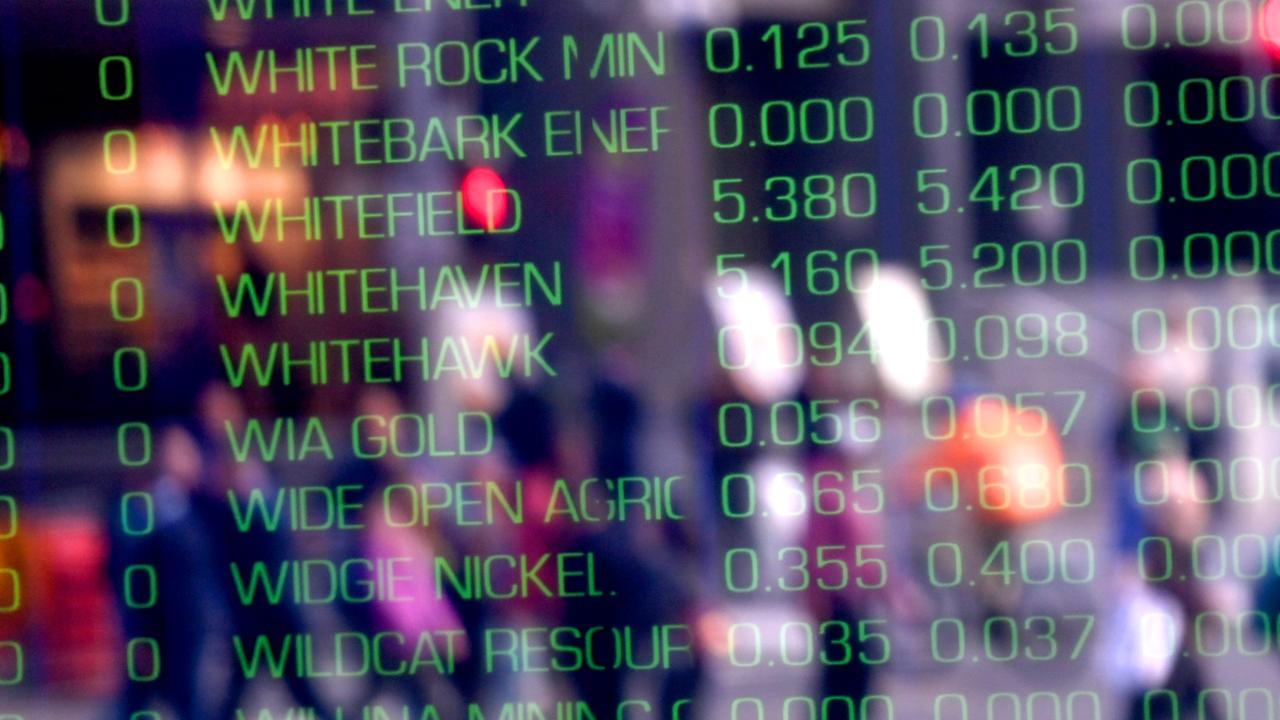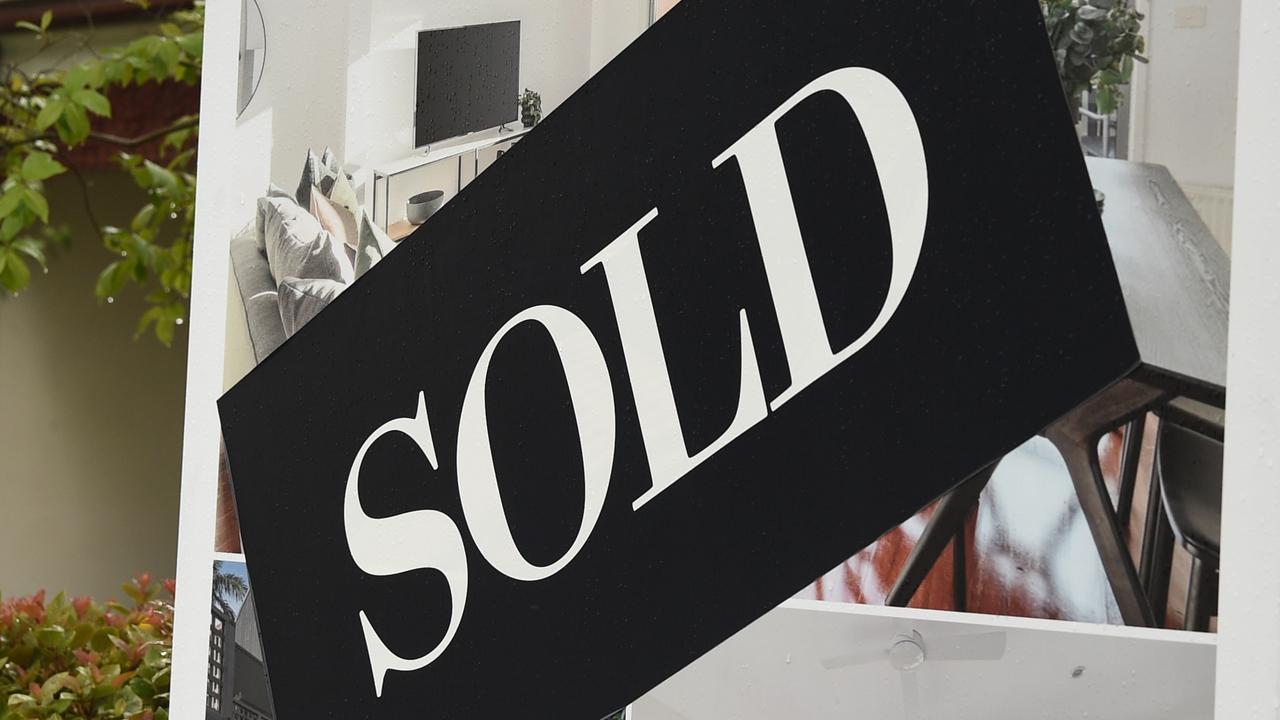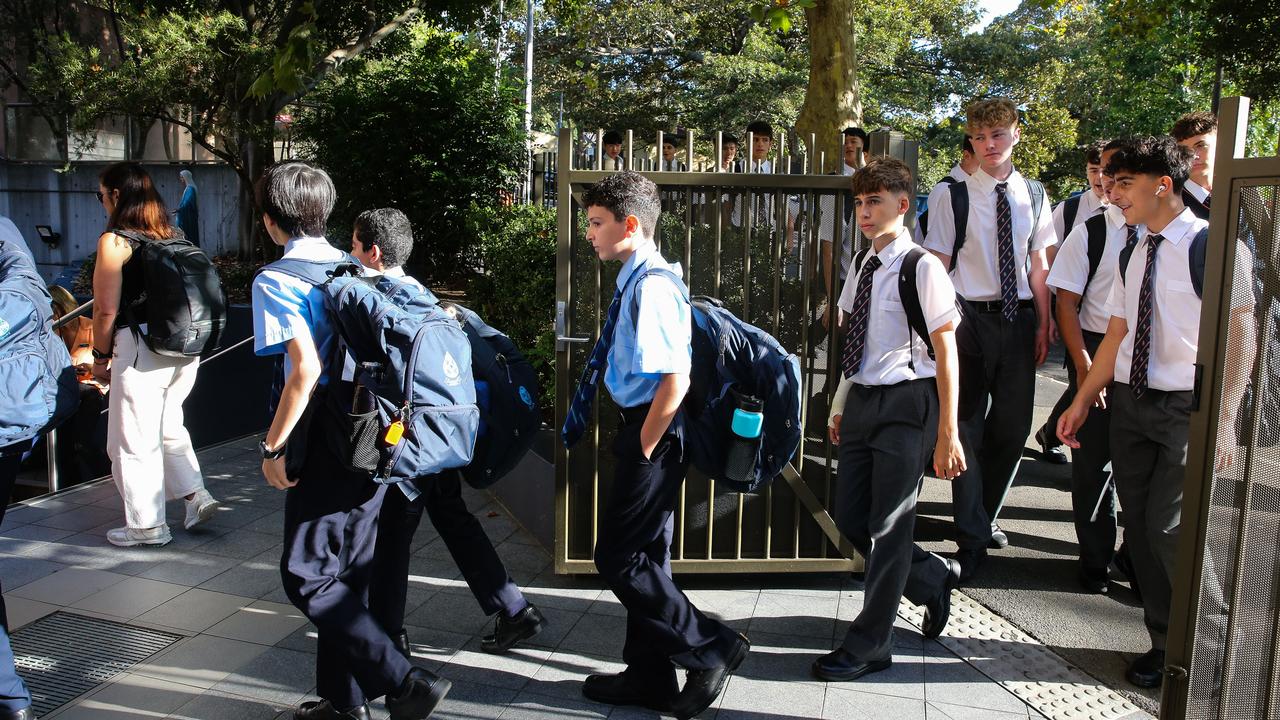‘Australians should feel confident’: Silver lining inside Australia’s cost of living crisis
As the cost of living crisis leaves us counting our shrapnel, Australia has been reminded of a silver lining, however slim it may seem.
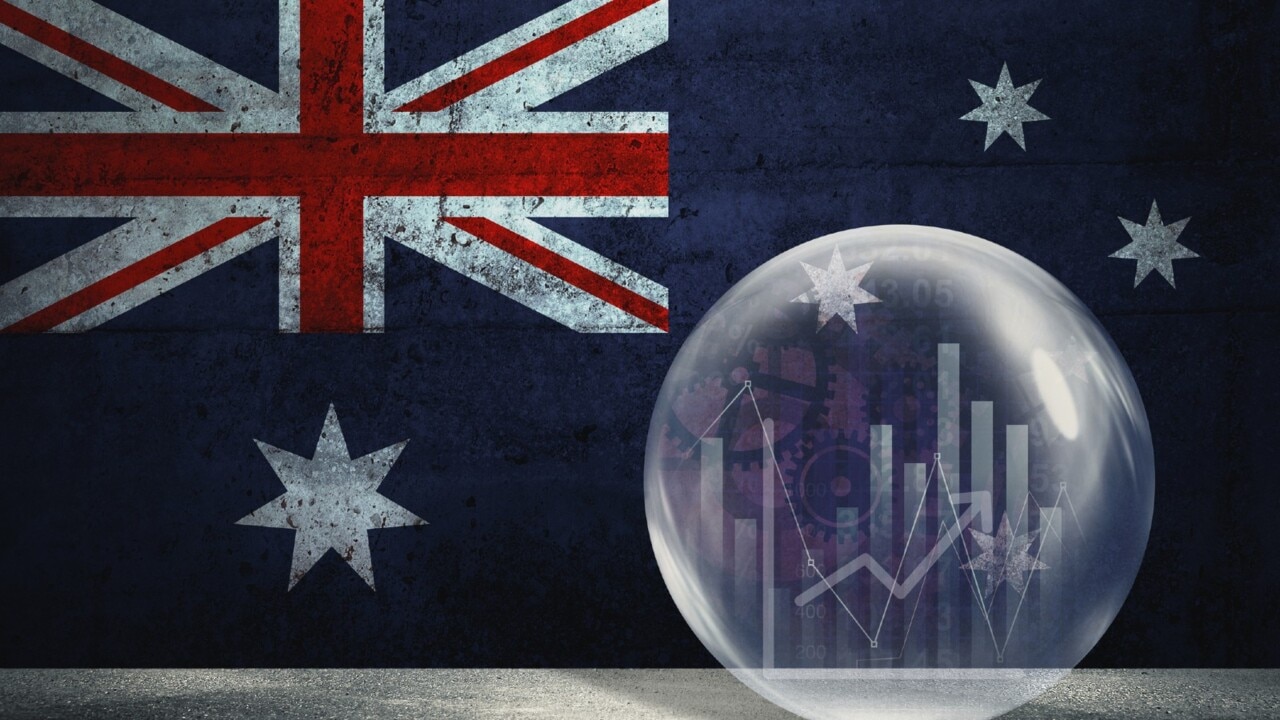
When it comes to the economy, Australia’s sentiment has been clear throughout 2023. We’re feeling increasingly frustrated at surging supermarket prices, unfair rental markets and a general feeling that our dollar isn’t worth what it used to be.
But amid the cost of living crunch, which is affecting millions of families, Australia has been reminded of a silver lining, however slim it may seem for those feeling the most heat.
The Australian Bureau of Statistics has revealed the economy grew by a modest 0.2 per cent during the September quarter, marking the eighth consecutive quarter of growth.
According to the ABS, government expenditure and capital investment driving the growth this quarter, while ongoing migration has led to a 0.5 per cent decrease in GDP per capita during the quarter.
This follows a 0.1 per cent decrease in June, indicating a negative impact on individual income due to migration.
Inflation remained elevated, with consumer prices rising by 1.2 per cent during the quarter and 5.4 per cent over the year.
Housing rents and electricity experienced significant price rises, with rents rising by 7.6 per cent in the past twelve months.
But according to the ABS, jobs showed an increase wage movement, with the average change in wage being significantly higher than the previous quarter.
The 2.6 per cent jump was the fastest quarterly rise on record.
“Increases in the superannuation guarantee rate, the minimum wage and continued tightness in the labour market all contributed to the rise in compensation of employees in the September quarter,” Ms Keenan said.
In the jobs market, total working hours decreased by 0.7 per cent compared to the previous quarter, marking first quarterly fall since September 2021. But despite the decrease in working hours, labour productivity rose by 0.9 per cent.
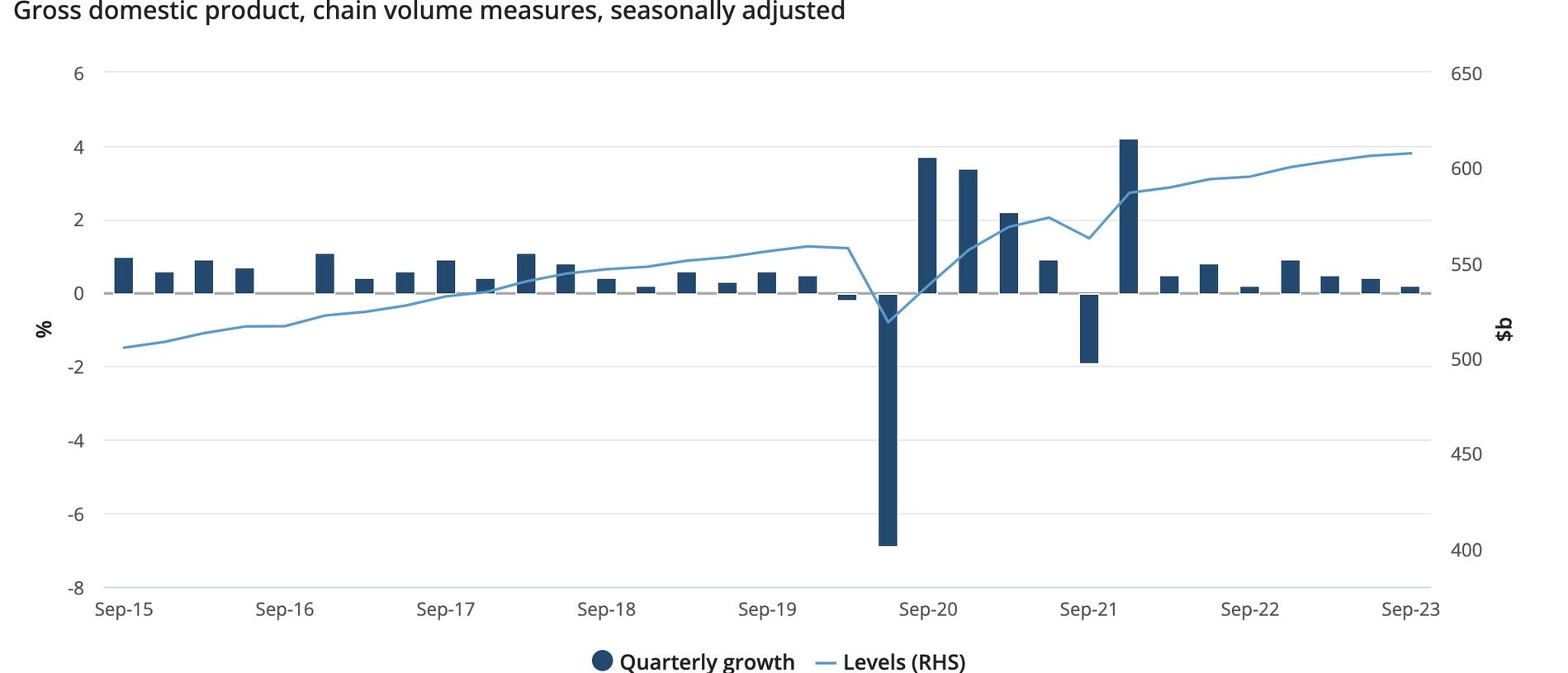
But should we be happy that our wages have risen just 2.6 per cent, while the Reserve Bank and the ABS simultaneously report much larger increases in rentals, utilities and consumer goods?
Marion Kohler, the RBA’s Acting Assistant Governor, says headline inflation has decreased significantly on 2022 and claims the Australian economy has “evolved more or less as we expected a year ago”.
“GDP growth has slowed, labour market conditions have eased a little and headline inflation has fallen from its peak of close to 8 per cent in late 2022 to just under 5.5 per cent in the most recent data,” Ms Kohler said.
“Public and business investment have been strong of late, supported by a large pipeline of construction and public infrastructure work. And a rapid rebound in the number of international students and tourists has contributed to robust growth in overall consumer spending domestically.
“These factors are expected to continue to support growth in the near term; they also help to explain why we have upgraded the outlook for growth over the coming year.
“This is expected to be driven by a pick-up in consumption growth as the pressures on households’ budgets from inflation fade and household wealth is supported by higher prices in the established housing market.”
Labor MP Andrew Charlton believes Australia’s economy is “doing better” than most countries around the world as economic turmoil engulfs unstable nations.
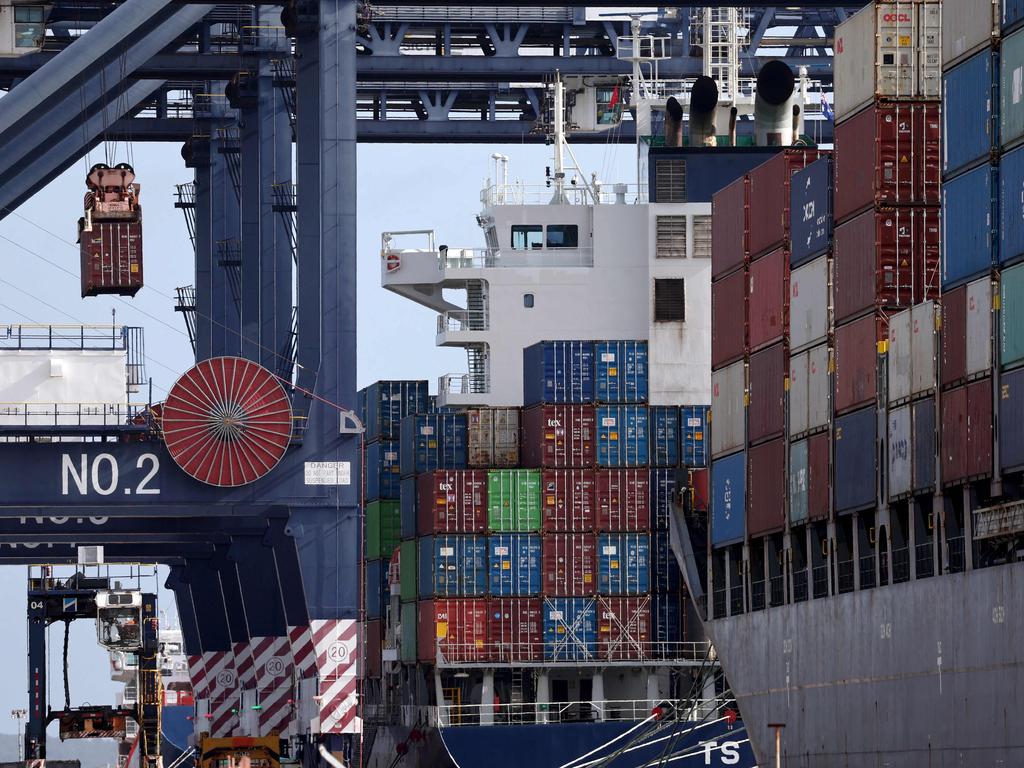
On Tuesday, the Reserve Bank decided to keep rates on hold at 4.35 per cent in their final meeting of the year. Mr Charlton said criticisms of the Labor government were partly unfair, claiming that the inflation challenge was “inherited” when they came into government.
“Australians should feel confident the economy is strong,” Mr Charlton said. “If we had been sitting here two years ago, we wouldn’t have expected that Australian unemployment would have a three in front of it. It’s one of the lowest unemployment rates in Australia’s history.
“We are doing better than most of our peers with the inflation problem we have inherited and with the global uncertainties bearing down on us.”
But for the regular Aussie, it may take time before things return to “normal”. While inflation has been predicted to drop below 3 per cent by 2025, most are still grappling with the sudden explosion following the pandemic.
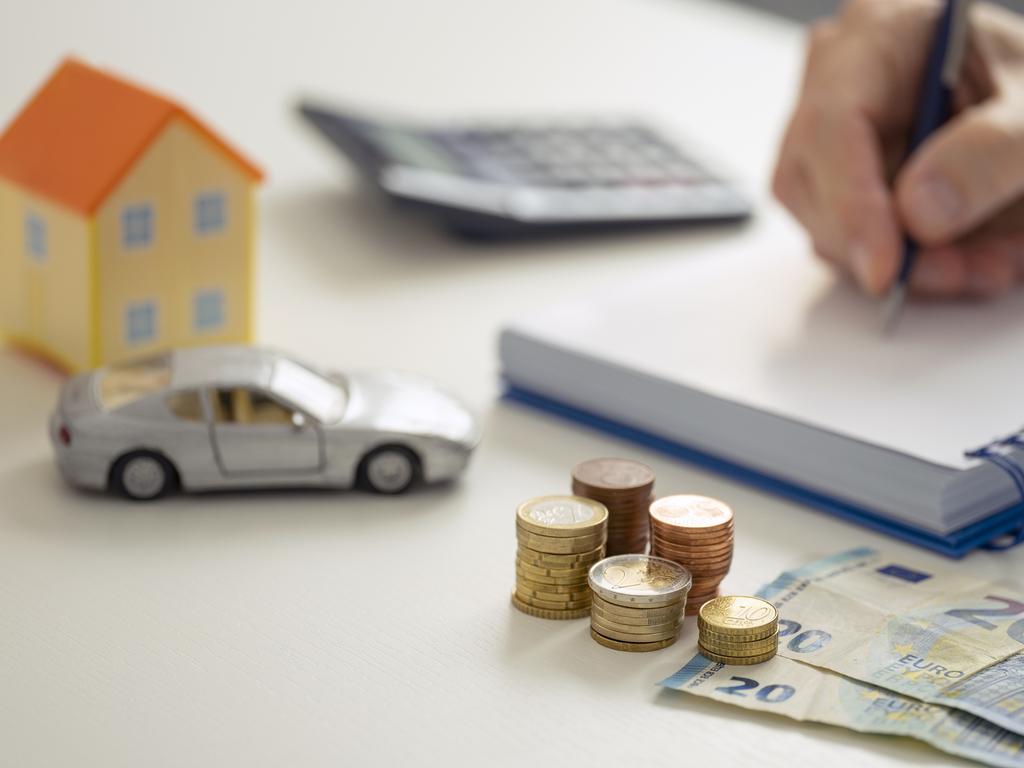
As such, household savings were low through the September quarter, with only 1.1 per cent of income saved during the quarter, the lowest proportion since December 2007.
Fresh food purchases and alcoholic drink purchases also declined, indicating households are tightening their belts.
Government support for power prices and childcare, including the Energy Bill Relief Fund and expanded childcare subsidy eligibility, contributed to a 1.1 per cent increase in government consumption.
Electricity prices also rose by 4.2 per cent during the quarter, but would have increased by 18.6 per cent without government rebates, according to the RBA.
Co-hosting the FIFA Women’s World Cup also contributed to a 4.4 per cent growth in the tourism sector during the quarter.
It comes as economic doomsayers claim the US economy is on the fritz, despite some analysts claiming it had bounced back following the pandemic.
In April this year, a Wall Street insider predicted that the nation will be plunged into recession by year’s end.
JPMorgan Asset Management’s chief investment officer Bob Michele told Bloomberg Television that while “you don’t know exactly where it’s going to hit”, it was now a certainty that economic pain was coming – and fast.
Mr Michele claimed that interest rate hikes – which we’ve also been subjected to here in Australia – coupled with quantitative tightening from the Federal Reserve have “already broken the back of inflation”, with the economy set to weaken soon as a result.
“We think recession is inevitable by the end of the year,” he said.
“When the pain hits, when we get into recession, we’re expecting high-yield credit spreads to go to a minimum of 800 (basis points) over” comparable US Treasuries.
AMP chief economist Shane Oliver previously told news.com.au that a downturn in the US would be “bad news” for Aussies.
“The US is the world’s biggest economy … and it does affect business and consumer confidence, and it does affect demand for our exports simply because the US is part of the global economy, although it’s not the same as China which is our biggest export market,” he explained last year.
But Dr Oliver said history had shown that Australia was able to sail through periods of serious US recessions relatively unscathed, including the GFC and the tech wreck of the early 2000s.
“Just because the US has a recession doesn’t mean we will as well, but it would have a negative impact on economic growth in Australia,” he said.


